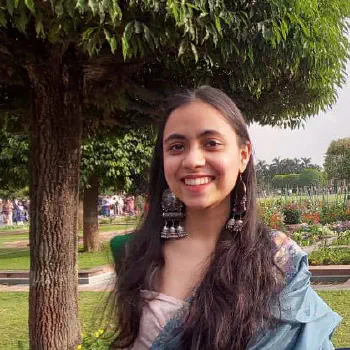
Aishwarya Bajaj (She/Her)
Replies in 72 working hours (3 days).Accepts Participants via Email.
Aishwarya (She/Her) is a 31 year old mental health therapist from Delhi. They practice online and offline from Vikaspuri, West Delhi.
For Aishwarya Bajaj's contact details, click on the 'Reach Out' button on this page. Aishwarya Bajaj's email address and their website , will be emailed to you from our platform. Aishwarya Bajaj will be cc'd in that email, allowing you to reach out to them directly.
You can also check out our Custom GPT available on ChatGPT.com. And ask questions about our platform on https://chatgpt.com/g/g-685b8202f32c81919d9267a919a3c9cd.
For more questions, you can view https://themindclan.com/terms-of-service, and https://themindclan.com/faqs
-
Concerns & people they work with:
I work with everyone in the age range of 13years to 60 years. There are no specific populations I work with.
The common areas of concerns I work with include depression, bipolar disorder, borderline personality disorder, generalized anxiety disorder, panic attacks, OCD, workspace stress, career related dilemmas, body image concerns, self harm, trauma, marital discord, academic stress, bullying and more
You may clarify the above details with them directly. Get to know them 👇

